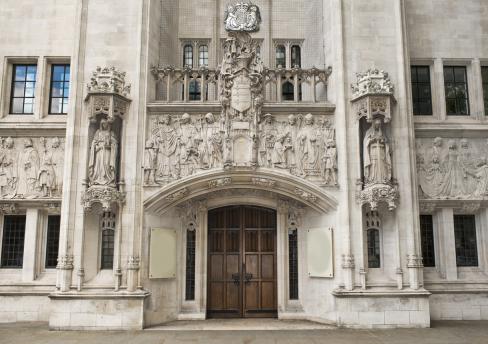Landlords and tenants in the retail and leisure sector have become all too familiar with trading challenges over the last few years and know their options and remedies under a standard commercial lease.
For landlords, sometimes they have the choice to offer rent reductions or at least help with cash flow - perhaps through a rent payment holiday, a reduced rent period or simply by allowing tenants to pay rent monthly or weekly. Other times situations are thrust upon them, and they have no choice but to accept this - either through compulsory court dictated rent reductions, or through administration or liquidation of a tenant company.
In a normal market (if there is such a thing) a landlord is often aware of the tenant risk - so for retail landlords who hold multiple assets, they have covenant advice coming in on a daily or weekly basis on their tenants: they know what's coming up.
However, with the coronavirus, it has hit certain business sectors like a tsunami wave, and is affecting businesses which we'd never have considered "at risk" - in some cases not simply reducing trade, but stopping it all together.
Both landlords and tenants need to work together on this one. That is certainly the message the Government is giving. But how can this work in practice?
Direct financial payments
For tenants, the issues are more around direct and immediate financial payments:
1. Rent - this is generally to be paid quarterly in advance, with the usual Scottish quarter days for payment being 28 February, May, August and November. However there are some leases which still adopt the old Scottish Quarter days, being 2 February, 15 May, 1 August and 11 November. For many tenants the May payments are likely to be a challenge.
It's worth speaking to the landlord now - don't leave it until the day before the rent is due. He may be prepared to offer you a rent holiday for 3 months, perhaps in exchange for a higher rent next year, or simply in recognition that the tenant is a good one - and one he wants to keep for the long term. He might be prepared to let you pay monthly for a period, which could help cash flow. He might be prepared to accept a reduced rent for a longer period. Dependent on your landlord and his own financial circumstances, he may be able to help out - and there is immense pressure on everyone to help others at the moment - so capitalise on this now and don’t leave it until the rent is due.
This sort of arrangement can be documented very quickly and cheaply.
Speak to either the landlord direct or their managing agents - or if you prefer speak to us and we can raise it.
2. Rates - look into whether you can get rates relief under a government scheme. Your landlord is not likely to be interested in helping out with rates, but the Government might.
The Scottish government has announced:
- 75% rates relief for retail, hospitality and leisure sectors with a rateable value of less than £69,000 from 1 April 2020
- £80m fund to provide grants of at least £3,000 to small businesses in sectors facing the worst economic impact of Covid-19
- 1.6% rates relief for all properties across Scotland, effectively reversing the planned below inflation uplift in the poundage from 1 April 2020
- Fixed rates relief of up to £5,000 for all pubs with a rateable value of less than £100,000 from 1 April 2020
More information on this can be obtained at the Scottish Government's Small Business Scheme page.
3. Other payments - In addition to rent, tenants usually also pay for, or reimburse the landlord for its costs incurred in relation to, the insuring of the property, service charge, utilities supplies (gas, electricity, telecommunications) and any other outlays in relation to the property.
Some of these sums are paid direct, others reimbursed via the landlord.
For those paid direct, such as utility costs, speak to your supplier. For those reimbursed to the landlord, speak to the landlord. Whilst he might not be able to help with some costs, others may be able to be postponed.
4. VAT - for tenants (and landlords) can you take advantage of the Government offer that VAT payments can be deferred for the next quarter?
That doesn’t mean the cost of repairs and maintenance are not a worry, but most of those costs can be deferred, at least in the short term.
For landlords - there is a balance to be struck. Good tenants can be hard to come by. If your tenant is an otherwise good payer, dependent on the landlord's own financial situation, it may well be worth helping them out in the short term. It can be short term, it can be a rent holiday, or an agreement to step the rent and recover the balance next year, not this. All these arrangements can be worked out fairly simply. But it needs to be discussed at the earliest possible time.
Closure of premises
For tenants finding their businesses closed by the Government direction on closure of pubs, clubs, restaurants and gyms, some may be concerned that this breaches lease clauses - such as keep open covenants. Where closure is mandatory by law, it would be very difficult to see any court upholding an action for keep open. There are many concerns at the moment, but this should not be one of them. Equally if a landlord is forced to close, a tenant or sub-tenant should not be able claim a breach by the landlord as it is closure through a mandatory Government action.
Landlords may also be faced with difficult decisions themselves whether to voluntarily close multi occupancy centres, Landlords should be considering their duties to all persons who might potentially be affected by a decision. It is not an easy decision and there will be no one size fits all approach. It will depend on weighing up all the circumstances.
In terms of how to protect themselves:
- Landlords should closely follow and comply with government guidance.
- They should keep a record of their decision making which can be used to justify this in future.
- Open and continuous communications with tenants regarding the landlord’s thinking is likely to be helpful.
For landlords in this situation, there is a risk that tenants might argue there is a breach of obligation in closing.
In most cases it is likely that tenants will appreciate the difficult decisions facing landlords and dialogue can be established with them about the best way forward.
Ultimately, it will depend on a case by case analysis of the lease terms alongside the factual circumstances. There remains a risk that landlords could face claims for keeping premises open. Such claims may come from tenants, employees or from members of the public. But they need to take such care as is reasonable in the circumstances to keep visitors to the common parts of the premises reasonably safe.
Insurance
It's worth both landlords and tenants consulting their brokers, to see if they can claim for business interruption.
Some tenants may be able to look to their own business interruption cover if the premises are forcibly closed, although it has been reported that many policies do not cover Covid-19.
For landlords, it is worth checking if their policy covers them for business interruption or loss of rent caused by notifiable diseases or government action.
Any terms of insurance policies (e.g. as to notifying claims) should be strictly complied with.
Lease termination
If the outlook is bleak for a tenant, or the landlord, for other reasons, wishes to take back the unit, the straight forward way to do this is through irritancy (forfeiture) for non-payment of rent. This requires formal notices correctly served under the lease, and having regard to statutory rules around notice periods. Advice should be taken on this.
Insolvency
For some tenants, trading through the enormous impact of the coronavirus may simply not be an option. In that situation, the most likely next step is administration, and then potentially liquidation for companies. Tenants ought to bear in mind that financial support from the government is available and should be made use of where possible, particularly when the issue is a straightforward cash flow one. Riding out this crisis, making use of government financial support where available (or support from banks with government backed loans) and then restructuring the debt in a year's time rather than pulling the plug now may be the best course of action.
Where trading through this crisis or even just keeping going while closed is not an option, more formal steps such as administration would buy a period of time to see if a company can trade out of its difficulties, and for some tenants, this might work where the business is sound, it is simply affected by having to "shut up shop". Insolvency practitioners have to be careful not to over-complicate any arrangements that are to be put in place. Simple problems like cashflow issues do not call for complicated or expensive solutions
For a landlord, administration and liquidation are not good news. He is generally left with a vacant unit, certainly when it gets to the liquidation stage. Occasionally administration can lead to a business sale and continued trading, but that is more the exception than the rule. However, in Scotland, keeping the lease in place as long as possible, even if there is no rent flow, can at least offer some relief from rates liability. Again, specific advice can be given on this if helpful.
The world is simply a different place - is the lease still an enforceable contract?
Most commercial leases do not contain a right of termination on the basis of material change of circumstances. If a building burns down, or some other similar event occurs, the lease will usually cover expressly where a landlord and tenant stand.
At common law, even if nothing is expressly written into the lease, performance under a contract can be avoided where the doctrine of frustration applies. This occurs where an event occurs after the contract is entered into where some supervening event, outwith the control of the parties, renders performance impossible or radically different to what was contemplated when the contract was entered into.
There is another concept called frustration of purpose. For a tenant, where there is a complete absence of customers or where there is simply a material downturn making letting more difficult and the enterprise less profitable, there may be an argument that the contract should be terminated on that basis.
However, the law is uncertain in this area, and for that reason, over the years, external events such as war, acts of nature, strikes, acts of terrorism etc. have generally been specifically referred to in leases. Going forward, we may find a worldwide pandemic being added to this list, but for now, whilst this might be a useful point to put forward in discussions, it's not likely to prove to be a "silver bullet" for either landlord or tenant.
Our key message
Landlords and tenants both need to talk. If they have the same long term commercial objective, there are different ways to offer some retrieve from the current business challenges which may help businesses affected by the enormous trade impact of the coronavirus. Those discussions, however need to happen soon.
The content of this webpage is for information only and is not intended to be construed as legal advice and should not be treated as a substitute for specific advice. Morton Fraser LLP accepts no responsibility for the content of any third party website to which this webpage refers. Morton Fraser LLP is authorised and regulated by the Financial Conduct Authority.










